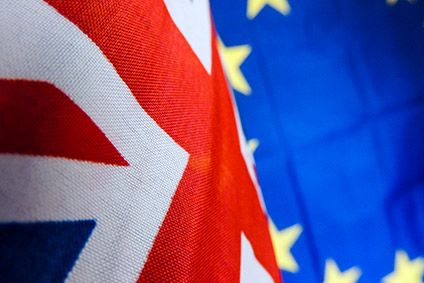
The UK government is preparing a new set of import tariffs which would include a 10% tariff applying to all imported new cars when the UK’s Brexit transition period ends at the end of this year.
The new provisional measures assume there is no new trade deal with the EU and would therefore mean tariffs applying to some goods imported from the EU, including food and new cars. The new UK tariffs will replace the EU’s Common External Tariff (CET) on 1 January 2021 at the end of the current ‘transition period’.

Discover B2B Marketing That Performs
Combine business intelligence and editorial excellence to reach engaged professionals across 36 leading media platforms.
However, tariffs would be removed from a range of other products imported from around the world.
The UK’s Department for International Trade (DIT) said leaving the EU would allow the UK to have a bespoke system that would be simpler and cheaper while providing support for key sectors of the economy.
In a sign that there will be no extension to the transition period designed to smooth the UK’s exit from the EU, the UK government said the new global tariff would be introduced on 1 January, 2021.
The Department for International Trade said Britain would scrap all levies on GBP30bn of imports as part of its new “MFN (most favoured nation) tariff regime” called the “UK Global Tariff”. It would form the basis on which the UK will trade with other countries after the end of the Brexit transition period on December 31 unless and until it has struck new trade agreements with them.
World Trade Organisation (WTO) rules mean the UK would have to impose the same tariffs on goods from the EU and from other countries around the world if it left the EU trade bloc without a deal. Other countries are under no obligation to reciprocate by cutting their own tariffs for British imports.
The UK government is still negotiating with the EU in the current ‘transition year’ in the hope of avoiding new tariffs on UK-EU traded goods in the future, but the negotiations have yet to achieve a breakthrough.
International Trade Secretary Liz Truss said: “For the first time in 50 years we are able to set our own tariff regime that is tailored to the UK economy. Our new Global Tariff will benefit UK consumers and households by cutting red tape and reducing the cost of thousands of everyday products. With this straightforward approach, we are backing UK industry and helping businesses overcome the unprecedented economic challenges posed by Coronavirus.”
However, the UK auto industry will be wary of new tariffs applying to UK-EU trade in new cars. Tariffs on imports from the EU will mirror tariffs in the other direction – UK shipments to the EU bloc will face a 10% CET applying to cars unless the UK and EU come to a trade deal this year.
The export orientated UK auto industry will fear the potential consequences of tariffs applying to UK shipments to the EU. Higher prices for UK-sourced cars in EU markets could cause some manufacturers to source more from within the EU in the long-term, suggesting less business for UK car plants that are heavily reliant on shipments to the EU. However, on the upside, there could be more UK assembly to supply the UK market, thus avoiding new tariffs on imported finished vehicles. Some manufacturers may also opt for strategies that focus on a bigger ‘rest of world’ export element to UK manufacturing plants.






